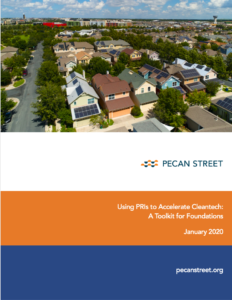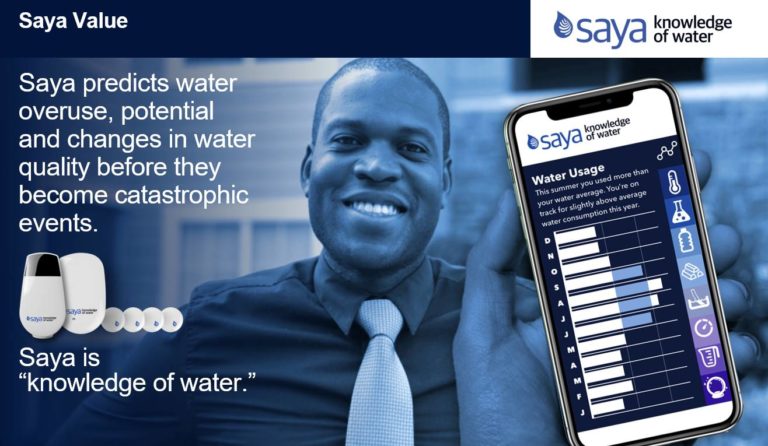February 3, 2020
 Bart Bohn, startup adviser
Bart Bohn, startup adviser
Most of us know there is a dire climate problem, so it is no surprise a wave of entrepreneurs is launching tech startups that reduce carbon emissions or climate change impacts. But the lingering 2008 cleantech bust hangover means there is severely limited investment funding for these companies.
Pecan Street works with a dozen of these startups through the Department of Energy backed PLATFORM program, and we see first-hand how tough the fundraising process is for hardware-driven cleantech companies. Fortunately, there’s an untapped tool called the Program-Related Investment (PRI) that enables private foundations to make investments into startups beyond traditional grantmaking. Private foundations deployed $75 billion in overall giving in 2018, which could compete with the $8 billion invested by VCs in cleantech’s peak in 2008 and 2011.
 This week, Pecan Street released a step-by-step guide for foundation staff to implement a PRI strategy. The toolkit includes an overview of PRIs, the cleantech field, ways to convince your board of cleantech’s connection to your mission, and the best way to structure PRIs for your institution. For foundations with skilled staff, a large budget, and strong legal support, hosting internal PRIs may be the best bet. For foundations with limited funds or a hesitant board or general counsel, hosting PRIs outside your institutions may be better. The toolkit walks readers through all the considerations when setting up the infrastructure to deploy PRIs.
This week, Pecan Street released a step-by-step guide for foundation staff to implement a PRI strategy. The toolkit includes an overview of PRIs, the cleantech field, ways to convince your board of cleantech’s connection to your mission, and the best way to structure PRIs for your institution. For foundations with skilled staff, a large budget, and strong legal support, hosting internal PRIs may be the best bet. For foundations with limited funds or a hesitant board or general counsel, hosting PRIs outside your institutions may be better. The toolkit walks readers through all the considerations when setting up the infrastructure to deploy PRIs.
Additionally, the toolkit provides examples of key documents such as a Term Sheet Side Letter (developed with the generous support of Adler and Colvin), a Startup Due Diligence form, and Investee and Portfolio Performance Reports based on VC best practices.
The companies doing the hard work to create the infrastructure of the future require capital to make them a reality. The philanthropic community has an opportunity to accelerate the speed of cleantech innovation with existing tools like PRIs, while simultaneously strengthening the diversity of their portfolios. Pecan Street hopes our toolkit will be a helpful resource for those interested in this approach.
We’d love to hear your thoughts on our toolkit! Visit us on LinkedIn to comment on our blog post and share your feedback.


















